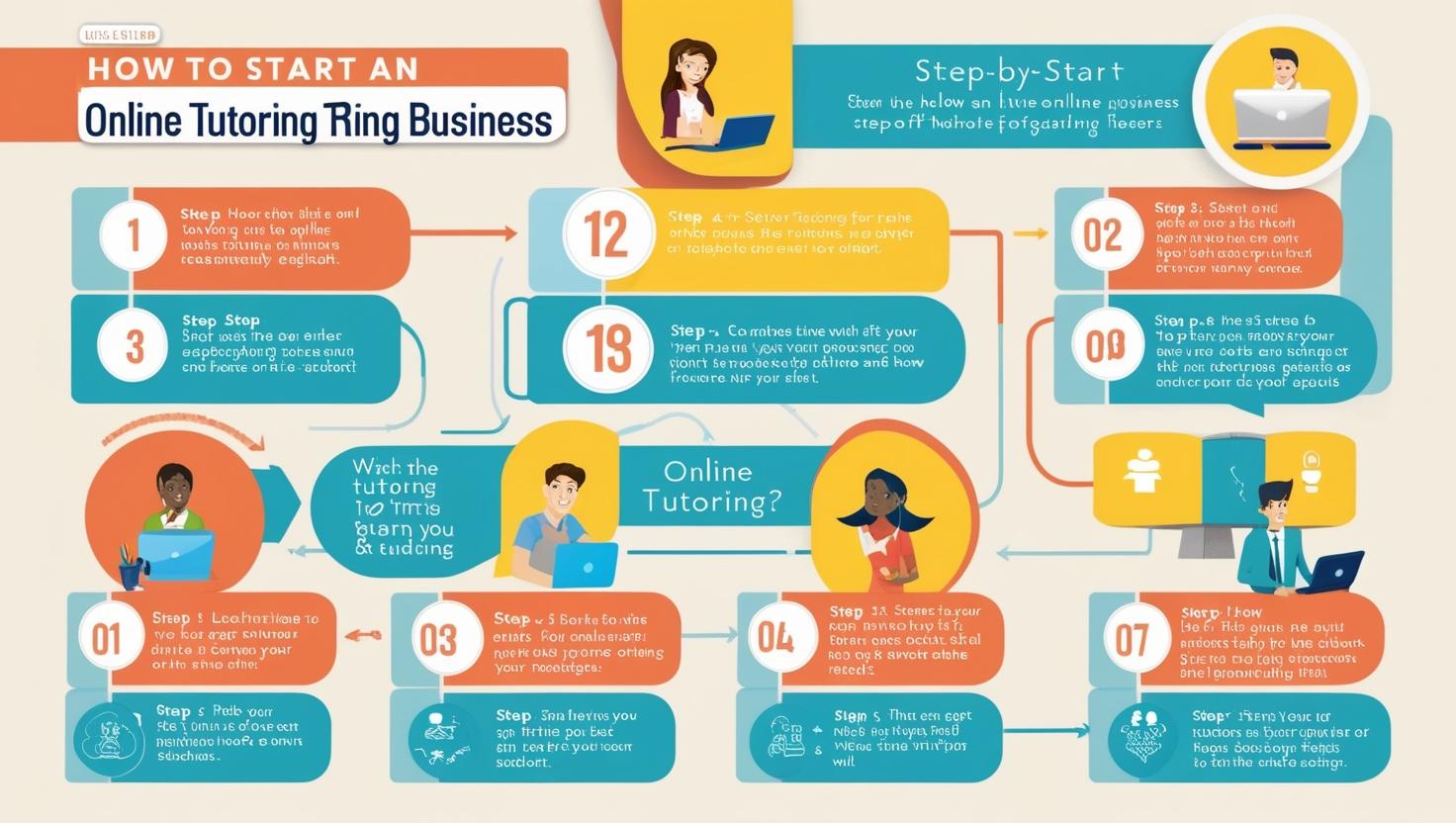Introduction: How to Start an Online Tutoring Business
Starting an online tutoring business can be an exciting and profitable venture. As the demand for personalized education continues to rise, more students are seeking online tutors who can offer flexible and customized learning experiences. This guide will walk you through how to start an online tutoring business by covering essential steps from setting up to marketing your services.
Step 1: Choose Your Niche for Tutoring
The first critical step in how to start an online tutoring business is selecting a niche. Focusing on a particular subject or type of student can help you target your services more effectively. Here are some options:
-
Subject-Specific Tutoring: Specialize in subjects like math, science, or English.
-
Test Preparation: Focus on helping students prepare for exams such as the SAT, GRE, or ACT.
-
Skill Development: Offer tutoring for non-academic skills like programming, music, or art.
By choosing a specific niche, you can tailor your marketing and tutoring style to appeal to a more defined audience.
Step 2: Set Up the Business Framework
Once you’ve selected your niche, it’s time to focus on the business side of things. Here’s what you need to do:
-
Register Your Business: To legally operate, make sure you register your business with the appropriate authorities.
-
Choose Your Business Structure: Decide if you’ll run your business as a sole proprietor, LLC, or tutoring agency.
-
Set Up Payment Methods: Use secure platforms like PayPal or Stripe to handle payments efficiently.
These foundational steps are critical for setting up a successful and legally compliant business.
Step 3: Build an Online Presence
A strong online presence is crucial to attracting clients. Without it, potential customers may have trouble finding you. Here’s how to establish a professional online image:
-
Create a Website: Design a website that highlights your services, qualifications, and a user-friendly booking system.
-
Incorporate Testimonials: Displaying positive feedback from previous students can build trust and credibility.
-
Online Booking and Payment: Make it simple for students to schedule and pay for tutoring sessions through your website.
Furthermore, using social media platforms like LinkedIn, Instagram, and Facebook can help expand your reach and connect with a wider audience.
Step 4: Choose the Right Tools for Effective Tutoring
To provide high-quality tutoring services, you’ll need the right tools. Fortunately, there are many tools designed specifically for online education. Here are some to consider:
-
Video Communication Tools: Platforms like Zoom, Google Meet, and Skype are essential for live tutoring sessions.
-
Digital Whiteboards: Tools like BitPaper or Jamboard help you visually engage with your students.
-
File Sharing Services: Use platforms such as Google Drive or Dropbox to share materials and resources with students.
Using these tools will make your tutoring sessions more interactive and efficient.
Step 5: Develop Your Pricing Strategy
Setting competitive pricing is essential to attracting clients while ensuring profitability. There are a few common pricing strategies:
-
Hourly Rates: Charge by the hour, typically ranging from $20 to $100, depending on your expertise and the subject.
-
Package Deals: Offer discounts for clients who purchase multiple sessions at once.
-
Group Sessions: Group lessons provide students with an affordable option while increasing your income.
Choosing the right pricing model will help you strike a balance between attracting clients and maintaining profitability.
Step 6: Market Your Online Tutoring Business
Once you’ve set up your business, you need a solid marketing plan to attract clients. Here are some effective marketing strategies:
-
Search Engine Optimization (SEO): Optimize your website with targeted keywords like “online tutoring” and “math tutor” to rank higher in search engines.
-
Content Marketing: Create valuable content such as blog posts or educational videos that showcase your expertise.
-
Referral Programs: Encourage your existing students to refer others by offering discounts or free sessions as incentives.
These strategies will help you grow your client base and increase brand awareness.
Step 7: Focus on Providing High-Quality Tutoring Services
The most important aspect of how to start an online tutoring business is providing exceptional services. To ensure student success, consider these key tips:
-
Be Patient and Flexible: Tailor your teaching approach to meet the individual needs of each student.
-
Track Student Progress: Regularly monitor and assess your students’ performance to identify areas for improvement.
-
Offer Constructive Feedback: Provide feedback that helps students understand their mistakes and improve their skills.
By focusing on high-quality tutoring, you can build a loyal client base and foster long-term relationships with your students.
Conclusion: Building a Successful Online Tutoring Business
In conclusion, how to start an online tutoring business requires careful planning, setting up the right tools, and implementing effective marketing strategies. By focusing on delivering high-quality tutoring services and offering personalized learning experiences, you will be well on your way to establishing a successful online tutoring business that meets the needs of your students.


